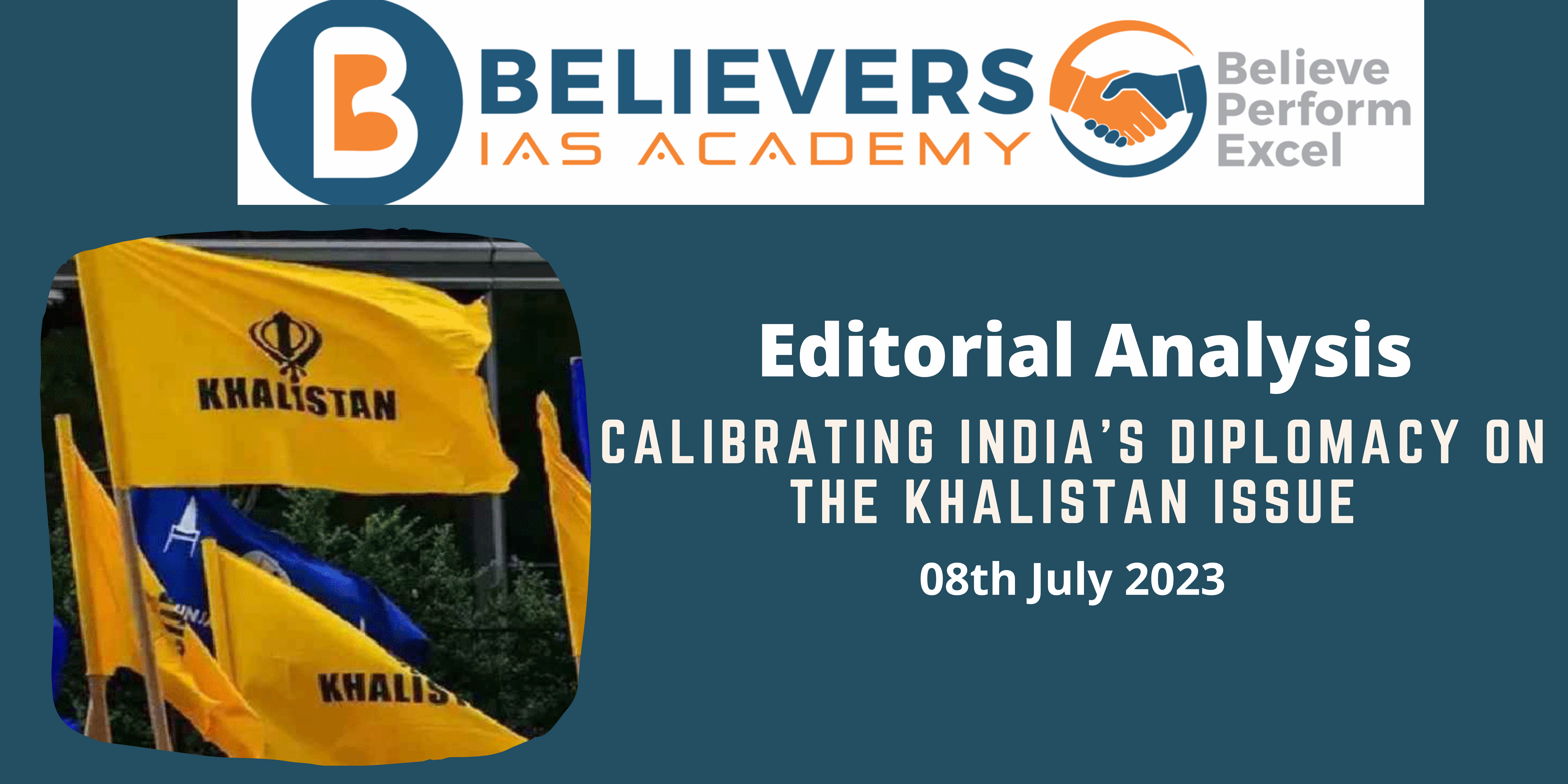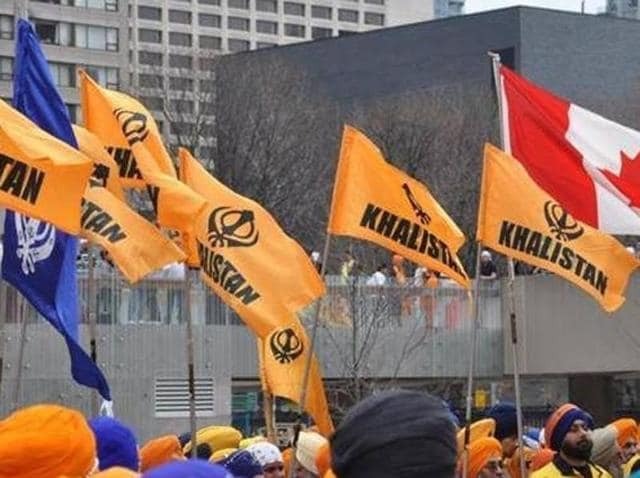Calibrating India’s Diplomacy on the Khalistan Issue
Context:
The rise in pro-Khalistan separatist activities, particularly ahead of planned rallies targeting Indian diplomatic missions and diplomats in the U.S., the U.K., Canada, and Australia, has prompted the Indian government to take proactive measures. National Security Adviser Ajit Doval recently engaged in talks with his British counterpart in Delhi, while the Ministry of External Affairs (MEA) has initiated discussions with partner countries to emphasize the need for pre-emptory action.
Relevance:
GS-02 (International relations)
Mains Questions:
- Analyze the significance of international cooperation in combating the growing violence perpetrated by pro-Khalistan groups. Elaborate on the potential challenges and propose effective mechanisms for information sharing and intelligence collaboration. (250 words)
Dimensions of the Article:
- Escalating Threats to Indian Diplomatic Interests
- Demanding Action Against Threatening Groups
- Reevaluating India’s Public Diplomacy Approach
- Recognizing the Complex Dynamics
Escalating Threats to Indian Diplomatic Interests:
- The planned rallies and attacks on Indian missions, coupled with arson attempts and vandalism, signify an alarming surge in separatist activity abroad.
- The governments of the U.S., the U.K., Canada, and Australia, where these incidents have transpired, must recognize the gravity of the situation.
- The protests scheduled served as a wake-up call for these nations to fulfill their obligations under international conventions by ensuring the adequate protection of Indian diplomatic interests.
Demanding Action Against Threatening Groups:
- Concerted efforts are required to investigate and neutralize the groups orchestrating violence and posing a threat to diplomatic missions. It is imperative for the respective governments to gather intelligence and collaborate on planning and executing preventive measures.
- Drawing lessons from past incidents, such as the 1985 bombing of an Air India flight, the need for proactive action cannot be overstated. These governments must refrain from exploiting the notion of “freedom of speech” as a pretext for failing to prevent criminal acts.
Re-evaluating India’s Public Diplomacy Approach:
- While the primary onus lies with the countries witnessing a surge in pro-Khalistan attacks, New Delhi should also introspect on its public diplomacy strategy. Adopting confrontational measures, such as freezing diplomatic contact or engaging in retaliatory actions like downgrading security for the British High Commission, may have symbolic significance but offer limited diplomatic efficacy.
- Additionally, the MEA’s habit of summoning top diplomats without differentiating between violent attacks and graffiti undermines the larger objective of fostering constructive dialogue.
Recognizing the Complex Dynamics:
- New Delhi’s vocal protests on behalf of the Indian diaspora and community centers targeted by pro-Khalistan groups need to be nuanced. It is crucial to acknowledge that victims and perpetrators within these incidents are often of Indian origin. Recognizing the multifaceted nature of the problem calls for increased cooperation, rather than indulging in brinkmanship.
- Establishing a robust mechanism for information sharing, intelligence collaboration, and dialogue can serve as a proactive approach to combat growing violence perpetrated by pro-Khalistan groups.
Way Forward:
- Strengthen international collaboration: Foster robust partnerships with the concerned nations to address the common threat of pro-Khalistan violence.
- Establish a dedicated intelligence-sharing mechanism: Create a platform for seamless information exchange, enhancing the effectiveness of preemptive measures.
- Engage in constructive dialogue: Initiate comprehensive discussions to understand the root causes and explore sustainable solutions to tackle the rise in separatist activities.
- Focus on preventive measures: Prioritize proactive actions, including intelligence-led operations, to disrupt the functioning of pro-Khalistan groups and avert potential security breaches.
Conclusion:
India finds itself at a critical juncture in its diplomacy regarding the Khalistan issue. With a surge in separatist activities and impending rallies targeting Indian diplomatic missions, it is imperative to strike a delicate balance between proactive measures and constructive engagement. By calibrating its diplomacy, India can effectively address the concerns raised by pro-Khalistan groups while safeguarding the interests of its citizens and preserving diplomatic relations with the nations involved. Only through international cooperation, information sharing, and dialogue can the growing violence perpetrated by such groups be effectively curbed.





